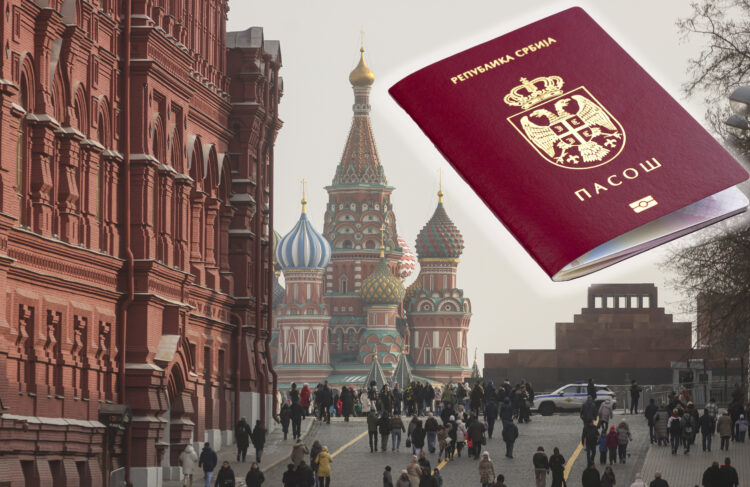The European Union has criticized Serbia for being overly aligned with Russia and has demanded that it stop issuing passports to Russian citizens. This recommendation appears in the “Enlargement Package”, a set of documents outlining the European Commission’s policy toward potential new EU member states, including individual progress reports for each candidate country.
In its report on Serbia, the EU Commission notes that the democratization process has slowed, while the effectiveness and oversight role of the parliament have weakened due to “infrequent sessions” and a “lack of genuine political debate.” The Commission also criticized the Serbian government for imposing “difficult conditions” on the operation of NGOs and the civil sector.
A significant portion of the report focuses on Serbia’s relations with Russia. The Commission condemned Belgrade for refusing to join EU sanctions against Moscow and criticized President Aleksandar Vučić for “demonstrative contacts” with Russian leadership, including attending the Victory Day parade in Moscow on May 9 and meeting with Vladimir Putin. The report emphasizes that Serbia has made limited progress in aligning with the EU’s common foreign, security, and defense policies. While Serbia has partially supported some EU Council decisions, including condemning Russian actions, it has maintained high-level contacts with Moscow and a rhetoric containing elements of anti-Western propaganda.
Special attention is given to Serbia’s issuance of passports to Russian citizens.
“Serbia’s visa policy is still only partially aligned with the EU’s list of third countries requiring visas. Granting Serbian citizenship to Russians effectively allows them visa-free entry into the EU, creating a potential security risk for the Union,” the report states.
Brussels demands that Belgrade align its visa policy with European standards and ensure strict control over visa-free entry for third-country nationals, especially those posing a security risk or risk of illegal migration. The Commission also calls on Serbian authorities to enhance background checks when granting citizenship, as holders of Serbian passports enjoy visa-free access to the EU.
The report notes that Serbia continues frequent flights to Russia and has not joined sanctions against China, Belarus, Iran, or North Korea. It also highlights that Serbia has taken insufficient measures to counter foreign informational influence, noting that the REM council approved Russia Today to broadcast in Serbian via the state network Telekom Srbija.
Although Serbia partially aligned its visa policy with the EU by reintroducing visas for citizens of Kuwait, Mongolia, Oman, and Qatar in December 2024, overall, the country’s visa policy remains only partially aligned with EU standards.
The EU also expresses concern about Serbia’s continued dependence on Russian gas and oil, despite diversification efforts. In May 2025, Belgrade extended its gas supply agreement with Russia for another four months, further entrenching energy dependence. Additionally, the U.S. imposed sanctions on Serbian oil company NIS on October 9, whose 56% of shares are owned by Gazprom Neft and other Russian companies.







